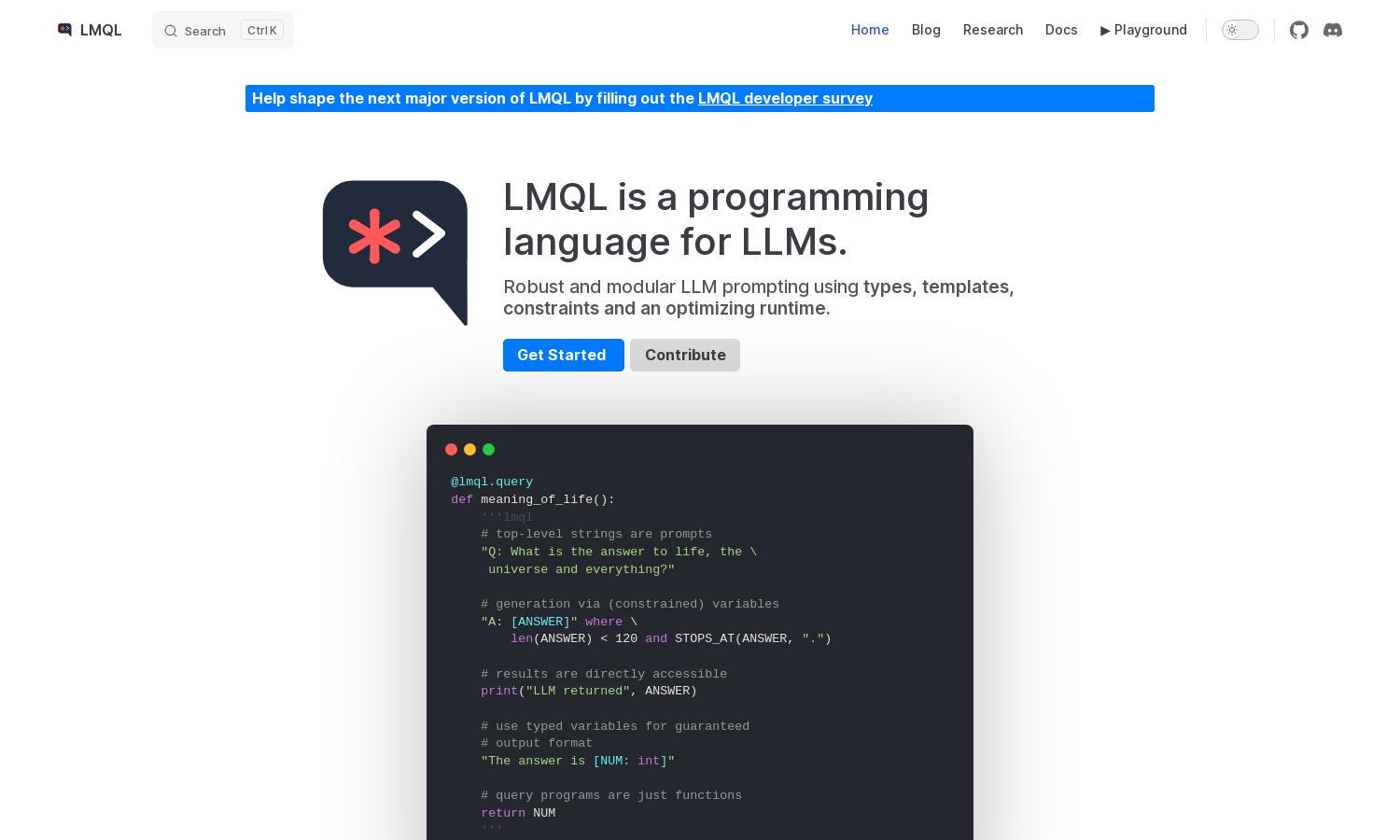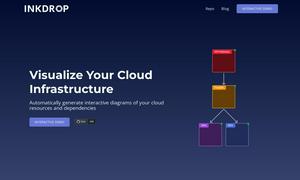LMQL

About LMQL
LMQL allows developers to interact seamlessly with large language models by creating structured prompts using a simple programming language. Targeted at data scientists and developers, it offers features like nested queries and backend portability, simplifying the LLM usage while optimizing performance and prompt construction.
LMQL provides various pricing tiers tailored for different levels of users, from individual developers to enterprise solutions. Each subscription offers unique benefits, including enhanced features and access to premium support. For users seeking advanced functionalities, upgrading to higher tiers unlocks significant value.
LMQL's user interface is designed for simplicity and efficiency, allowing users to navigate effortlessly through its features. The layout includes intuitive controls to streamline prompt creation and execution, enhancing user satisfaction and promoting a positive browsing experience throughout all functionalities available on LMQL.
How LMQL works
Users begin their journey with LMQL by signing up and exploring the intuitive dashboard. Once onboarded, they can create and manage LLM prompts using robust features like nested queries and type enforcement. LMQL makes coding more accessible, allowing users to switch backends effortlessly, ensuring efficient interaction with LLMs.
Key Features for LMQL
Nested Queries
Nested queries in LMQL provide a significant advantage by allowing developers to modularize their prompts. This unique feature enhances code reusability, simplifies the generation of complex interactions, and streamlines the handling of various LLM instructions, ultimately benefiting users in prompt structuring.
Backend Portability
With LMQL's backend portability feature, users can seamlessly switch between LLM providers. This adaptability ensures that code remains functional across different environments without the need for extensive modifications, providing users with flexibility and reducing hassle when working with various LLM platforms.
Typed Variables
LMQL introduces typed variables that guarantee specific output formats for generated content. This unique feature enhances the robustness of the interaction process, allowing developers to confidently manage expected outputs and ensuring that the results from LLMs adhere to defined structures and types.
You may also like:








